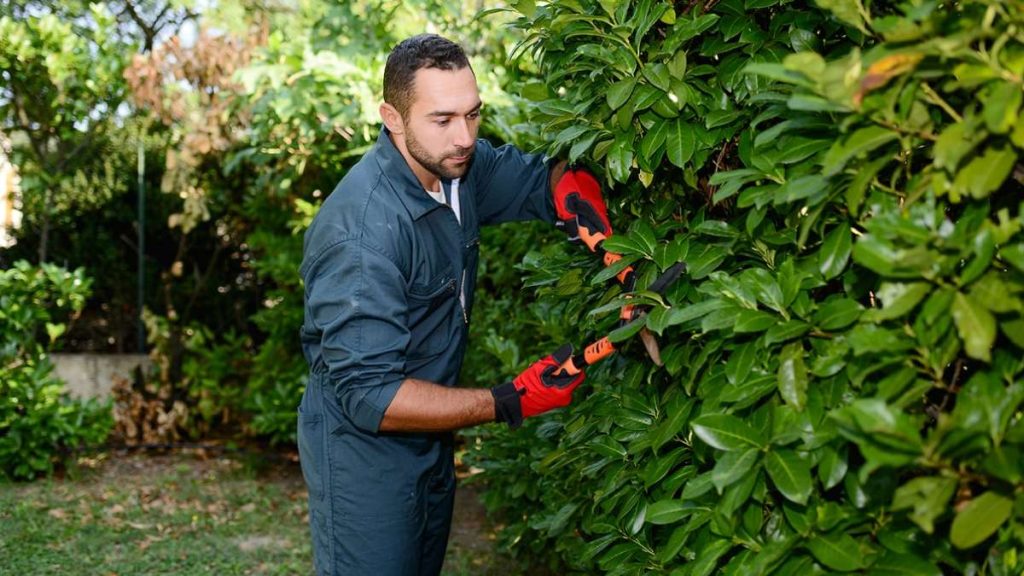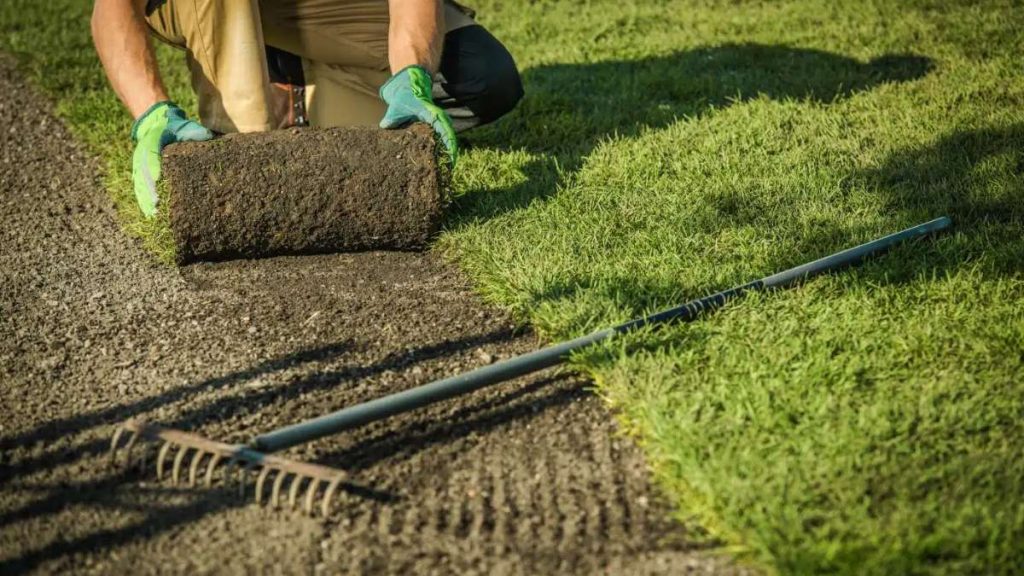Introduction
Overview of Gardening Insurance
Gardening insurance is a tailored form of coverage designed specifically for individuals and businesses working in gardening, landscaping, or horticulture. Whether you’re maintaining residential gardens, running a commercial landscaping business, or operating a nursery or greenhouse, there are numerous risks associated with this type of work.
These risks include property damage, accidents, and liability claims that could financially devastate a business without proper insurance protection. Gardening insurance provides a safety net for businesses, helping them to avoid significant financial losses in the event of accidents, theft, equipment damage, or extreme weather events.
Why Gardening Insurance is Important?
Gardening may seem like a low-risk profession, but the reality is that even small gardening businesses face a variety of risks daily. For instance, what happens if a passerby is injured by a fallen tree branch during a landscaping job? Or if a severe storm damages expensive equipment? Whether you’re self-employed or operate a larger landscaping company with employees, the financial implications of these incidents can be enormous. With gardening insurance, you’re not only protecting your equipment and property but also ensuring legal coverage in the case of accidents or liability claims, providing peace of mind and security.
What is Gardening Insurance?

Gardening insurance refers to a range of insurance policies designed to protect gardeners and landscaping businesses from the risks associated with their work. This coverage can include public liability, employer’s liability, property insurance, tools and equipment protection, and even business interruption coverage. Essentially, it provides financial protection in case of unforeseen events such as accidents, property damage, or theft of tools. This type of insurance can be customized to cover the specific needs of different types of gardening businesses.
Types of Gardening Businesses Covered
The scope of gardening insurance is broad, covering a wide array of businesses involved in gardening and horticulture. These include:
- Self-Employed Gardeners: Individuals who work independently, maintaining residential or commercial gardens.
- Commercial Landscaping Businesses: Larger companies that manage landscaping projects for commercial properties, parks, or urban developments.
- Garden Centers and Nurseries: Retail businesses that sell plants, gardening supplies, and equipment.
- Greenhouses and Horticulture Businesses: Operations involved in growing and maintaining plants for commercial sale or research purposes.
Each business faces unique risks, and the insurance policies can be tailored to address specific requirements.
Types of Gardening Insurance
Public Liability Insurance
Public liability insurance is one of the most critical components of gardening insurance. It provides coverage in case a third party suffers injury or damage due to your gardening activities. For example, if a client trips over a hosepipe or a passerby is injured by falling debris while you’re working, public liability insurance can cover legal fees and compensation. In many cases, public liability insurance is a requirement for businesses to operate, especially if you work on commercial properties.
Employer’s Liability Insurance
If you employ staff, having employer’s liability insurance is not just recommended—it’s legally required in many regions. This type of coverage protects you against claims made by employees who may suffer work-related injuries or illnesses. For example, an employee using heavy machinery may sustain an injury, and this insurance helps cover medical costs, legal fees, and compensation. Without this insurance, you could face significant penalties.
Tools and Equipment Insurance
Tools and equipment are essential for any gardening business. From basic hand tools to expensive lawnmowers and hedge trimmers, the value of this equipment adds up quickly. Tools and equipment insurance provides protection against theft, loss, or damage to these valuable items, whether they’re on-site or in transit. Without this coverage, replacing stolen or damaged tools could result in significant out-of-pocket expenses.
Business Interruption Insurance
Business interruption insurance covers lost income and operating expenses if your gardening or landscaping business is disrupted by a covered event, such as a fire, flood, or severe weather. For example, if a storm destroys your nursery’s greenhouse, making it impossible to operate, business interruption insurance compensates for the lost revenue and helps cover ongoing expenses like rent and wages while you recover.
Coverage for Garden Centers and Nurseries

Property Insurance
Garden centers and nurseries are particularly vulnerable to risks such as fire, theft, and weather-related damage. Property insurance provides coverage for buildings, equipment, and inventory against these risks. For nurseries, the inventory includes plants, shrubs, and other high-value items, which could be lost in extreme weather conditions or theft. This type of insurance helps protect against significant financial losses related to damaged or destroyed stock.
Crop and Plant Insurance
For businesses that rely on live plants, such as nurseries and greenhouses, crop and plant insurance offers vital protection. This policy covers losses due to weather events like frost, floods, or pests, as well as plant diseases. Plants are highly susceptible to environmental changes, and a single weather event could wipe out an entire season’s worth of crops. Having crop and plant insurance helps protect your investment and ensures business continuity.
Commercial Vehicle Insurance
If you use vehicles to transport plants, equipment, or employees to job sites, you’ll need commercial vehicle insurance. This policy covers vehicles used for business purposes, protecting against damage, theft, or accidents. Commercial vehicle insurance is critical for landscaping businesses that rely on trucks or vans to move their equipment and crew between locations.
Risks Covered by Gardening Insurance

Accidents on the Job
Gardening and landscaping tasks involve inherent risks, from using sharp tools to operating heavy machinery. If an employee or client is injured on the job, gardening insurance can help cover medical expenses and compensation claims. Additionally, this coverage extends to accidents causing damage to a client’s property, such as accidentally damaging a fence while trimming a tree.
Weather-Related Damage
Extreme weather conditions, such as storms, floods, and hail, can cause significant damage to your equipment, property, or even crops. Gardening insurance often includes coverage for weather-related damage, ensuring that your business can recover from such events without experiencing major financial losses.
Third-Party Claims
In addition to public liability insurance, gardening insurance provides coverage for third-party claims. This includes situations where your gardening or landscaping work causes harm to another person’s property. For instance, if your lawnmower accidentally throws debris into a neighboring property and damages a window, your insurance will cover the repair costs and any associated legal fees.
Why Gardeners and Landscapers Need Insurance?

Legal Requirements
For many gardening and landscaping businesses, insurance such as public liability and employer’s liability is legally required to operate. Without these policies, businesses could face legal penalties, fines, or even be forced to shut down. Ensuring that your business is compliant with local laws helps protect both you and your clients.
Financial Security
Without insurance, a single claim could potentially bankrupt your business. Whether it’s a client seeking compensation for injury or the loss of expensive equipment, the financial strain of these situations can be overwhelming. Gardening insurance provides financial security, ensuring that you can cover legal and compensation costs, repair or replace damaged equipment, and continue operations without experiencing severe financial hardship.
How to Choose the Right Gardening Insurance?
Assess Your Risks
Before purchasing gardening insurance, it’s important to assess the specific risks associated with your work. This includes considering the size of your business, the types of projects you handle, and the value of your equipment. If you employ staff or work on large commercial properties, you may need higher levels of coverage than a self-employed gardener working with a small set of tools.
Customizing Your Policy
Every gardening business is unique, and so are the risks. Work with a specialized insurance provider who understands the specific challenges of the gardening and landscaping industry. They can help you build a comprehensive policy that covers the various risks your business may face, from public liability to crop insurance and beyond.
Conclusion
Gardening insurance is an essential component of running a successful and secure gardening or landscaping business. Whether you’re a self-employed gardener or the owner of a large commercial landscaping company, having the right insurance coverage is crucial for financial protection and legal compliance. By assessing your business’s unique needs and risks, you can choose an insurance provider that offers specialized coverage, ensuring your business is fully protected against accidents, property damage, and other unforeseen events.